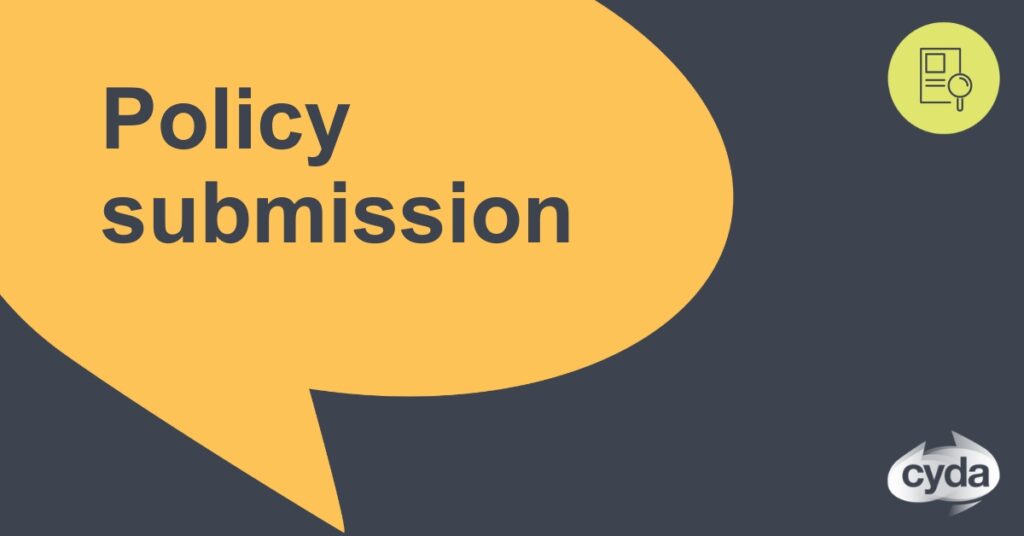CYDA welcomes the opportunity to make a submission to the Disability Royal Commission on behalf of a group of nine young people with disability who were involved in a forum held by CYDA about Disability Pride.
In enacting its strategic goal of supporting young people to take control and call out discrimination, abuse and neglect, CYDA collaborated with the Disability Royal Commission to undertake the Disability Pride forum, the purpose of which was to hear the views of young people about identity, diversity, embracing and disability as well as the barriers and enablers associated with achieving disability pride.
This report captures the experiences and recommendations of the young people who participated and should be read in conjunction with the two audio-visual recordings that also form part of the submission.
Download the full report using the buttons above.


